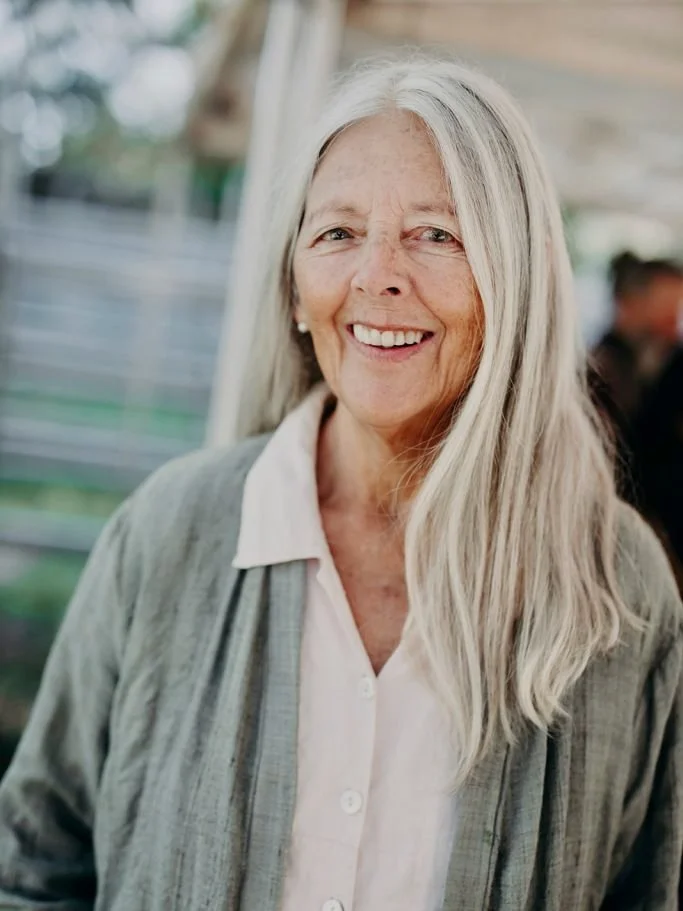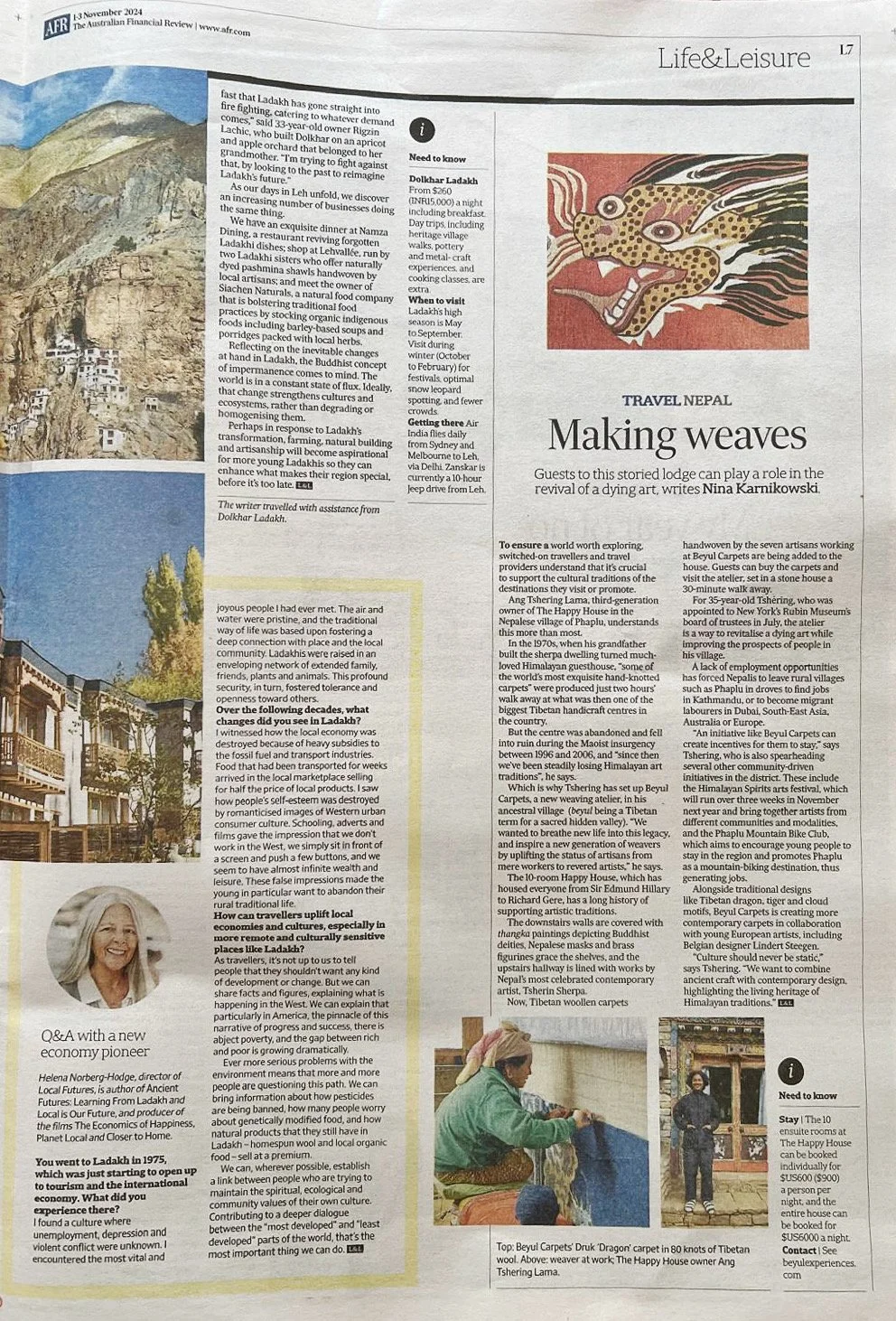LOCALISATION Q&A WITH HELENA NORBERG-HODGE: LIFE & LEISURE
HELENA NORBERG-HODGE, director of Local Futures, shares her insights on the transformation she witnessed in Ladakh, and her wisdom about how travellers might best support cultural self-respect and give back to local communities.Helena Norberg-Hodge, director of Local Futures, is author of Ancient Futures: Learning From Ladakh and Local is Our Future, and producer of the films The Economics of Happiness, Planet Local and Closer to Home.
Your work started when you went to Ladakh in 1975, which was just starting to open up to tourism and the international economy. What did you experience there when you first arrived?
I found a culture where unemployment, depression, and violent conflict were unknown. I encountered the most vital and joyous people I had ever met. The air and water were pristine, and the traditional way of life was based upon fostering a deep connection with place and the local community. Ladakhis were raised in an enveloping network of extended family, friends, plants and animals. This profound security, in turn, fostered tolerance and openness toward others.
You continued to travel to Ladakh over the coming decades. What changes did you see?
I witnessed how the local economy was destroyed because of heavy subsidies to fossil fuels and transport industries. Food that had been transported for weeks arrived in the local marketplace selling for half the price of local products. Most dramatically of all, I saw how people's self-esteem was destroyed by romanticised images of Western urban consumer culture. Schooling, adverts and films gave the impression that we don't work in the West, we simply sit in front of a screen and push a few buttons, and we seem to have almost infinite wealth and leisure. These false impressions made the young in particular want to abandon their rural traditional life. They actively rejected their own culture, trying to imitate the American consumer culture.
How can travellers uplift local economies and cultures, especially in more remote and culturally sensitive places like Ladakh?
As travellers, it’s not up to us to tell people that they shouldn't want any kind of development or change. But we can share facts and figures, explaining the truth about what is happening in the West. We can explain that particularly in America, the pinnacle of this narrative of progress and success, there is abject poverty, and the gap between rich and poor is growing dramatically.
Ever more serious problems with the environment means that more and more people are questioning this path. We can bring information about how the pesticides are being banned, how many people worry about genetically modified food, and how natural products that they still have in Ladakh - homespun wool and local organic food - sell at a premium.
We can, wherever possible, establish a link between people who are trying to maintain the spiritual, ecological, and community values of their own culture. Contributing to a deeper dialogue between the “most developed” and “least developed” parts of the world, that's the most important thing we can do.
This article was first published in print and online here.

